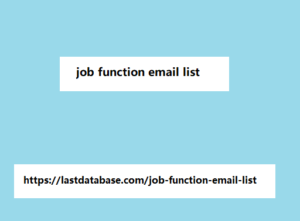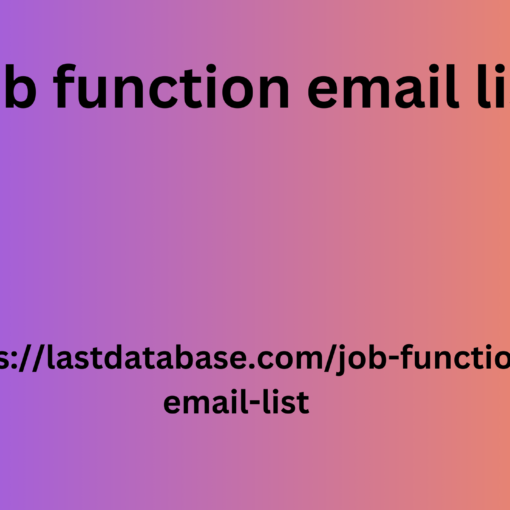Analytics (GA) is a foundational measurement tool for many marketing teams, and Google’s announcement this year (and the ominous bar that appear at the top of Google Analytics as a warning) that they will officially be sunsetting the familiar version, call Universal Analytics, on July 1, 2023, understandably freak a lot of people out. Act Now to Keep YoY Measurement.
Does your marketing even work? Your measurement should be able to answer that basic question, but that can’t happen if you’re not connecting mia investment to business impact.
The truth: if you don’t set up GA4 by the end of June 2022, you will lose historical YoY reporting. That’s 2022, not 2023.
That doesn’t mean you ne to start using GA4 for all of your reporting, but you do ne to act now to get the basics in place.
Your current Universal Analytics data will not automatically migrate into GA4, and critical information about your performance KPIs will no longer be available if you don’t take action. It’s not particularly useful to know that, for example, 1,000 people visit your website without any context into how many people have visit in the past.
What is Analytics
Google Analytics 4 is Google’s new privacy-first, cross-channel measurement platform that will replace the standard Universal Analytics on July 1, 2023. It was built to address several challenges modern marketers face, in particular the increasing complexity of the user journey and data loss resulting from data privacy changes.
Given the significant role, which job function email lists play in effective lead generation, the list targets people based on their particular roles within an organization; hence, it narrows down to the decision makers who may be interested job function email list in what you have to offer. This not only helps in enhancing the quality of your leads but also shortens the sales cycle since it ensures that you are talking directly with the ones with buying power. Personalized content distributed to relevant job functions maximizes engagement and amplifies all lead generation initiatives.
Making the switch to Google Analytics 4 isn’t just something you have to do; the new platform offers some critical new features that will actually help improve your marketing performance overall.
In today’s measurement landscape, businesses ne to navigate new challenges to understand the complex, multi-platform journeys of their customers — all while prioritizing user privacy.
Product Management Google Analytics
There are four key advantages Google has highlight that will make GA4 more durable and scalable than standard Universal Analytics while offering more access to specific advanc capabilities.
Privacy: GA4 was design to work without cookies or other identifiers and will no longer store IP addresses, and is built to work well with popular consent platforms like OneTrust and Cookiebot. It also offers enhanc privacy controls particularly important for GDPR and CCPA compliance.
users can opt out of data collection, but marketers will have access to better cross-device reporting and remarketing capabilities for users who do enable data signals. GA4 also helps fill potential data gaps by leveraging model conversions so marketers can still understand attribution, optimize campaigns, and improve automat bidding in the absence of user identification.
Unifi View of the Customer
The new platform will provide a more complete view of the customer journey by creating a single user identity that will be us across all reporting. The identity will integrate actions across sessions, platforms, and devices (web and mobile apps) by stitching three different types of identifiers together so you can get more insights into their relationship with your business instead of focusing on single events or touchpoints.
Data Granularity: In the past, truly granular reporting through Google Analytics was difficult unless you were a GA360 customer, but GA4 provides access to all unsampl, hit-level data in BigQuery. It also unlocks more granular organic reporting through a free Google Merchant Center integration, which differentiates between traffic from free Google Shopping listings and overall organic traffic, so SEOs can better understand product visibility in organic Shopping results.
Machine Learning
Marketers will be able to leverage sophisticat prictive tools that utilize machine learning to improve marketing performance. You’ll be able to create new audiences bas on the probability they will either make a purchase or churn and use prictive metrics to power deeper analysis into customer activity. New integrations across Google Marketing Platform offerings like DV360 and SA360 will help marketers effectively activate those insights.
In case we didn’t make it how to structure a marketing campaign clear at the beginning of this post, your historical data will not automatically show up in GA4 when you turn it on, so you cannot wait until June 30, 2023 to flip the switch.
You ne to set up Google Analytics 4 by June 30, 2022 or you will lose the critical ability to compare performance YoY.
This will likely hurt your marketing in a couple of ways, particularly for highly seasonal businesses. You will struggle to evaluate if campaigns are working or not without that historical context, and that will impact your strategy as a whole and your ability to optimize campaigns in particular.
Essentially, you’ll have to wait to set up new benchmarks to gain a fraction of the context YoY reporting provides. It can also be much harder to detect anomalies, which could mean you miss a broader issue that can affect performance, like bot traffic, site outages, and cart issues.
Audience creation across ad platforms could also be affect if you don’t get GA4 set up early; if those audiences are cut off, you’ll be forc to reset and regrow to achieve a statistically significant audience size and ensure your campaigns are effective.
How do you set up Google Analytics
You don’t ne to fully switch to GA4 right now, but you should have at least core GA4 tracking in place by the end of June, including pageviews, ecommerce, and primary conversion events you use in reporting. You can migrate any additional custom events later.
Wpromote’s Data Enablement team singapore number is helping our clients set up GA4 to make sure the data is flowing and they won’t lose any data or reporting capabilities because the migration process can be challenging.
The biggest lift will likely be determining which data points (Custom Events, Custom Dimensions, Custom Metrics) should be migrat over to GA4.
If you want to maintain all of your current data
You will ne to export your data manually via the interface, the Google Analytics Reporting API, or (for GA360 customers) to BigQuery.
If you have any campaigns currently optimizing against existing Goal Conversions link to Google Ads, you’ll ne to ensure these goals (now call Conversion Events in GA4) are mov over to GA4 as well.
GA4 also lets you set up cross-domain tracking directly in the interface. If you manage multiple web domains, you will ne to send all of that data into a single GA4 Data Stream for Cross Domain tracking to work.
It’s worth noting that now is the time to fix any issues you might have if your existing Google Analytics setup isn’t ideal for reporting. You should also consider this an opportunity to clean house if you have a lot of older views or events set up that you no longer use.
The migration looks something like this
There are three core groups, whether those are in-house or through an agency, that ne to be involv in the initial migration.
Analytics Team: to strategically plan how new events should be track and nam in GA4, configuration of property settings, and customizations like Custom Dimensions and Metrics
Development Team: to implement datalayers that work with the new GA4 syntax for pageview, ecommerce, and custom event tracking
Marketing Team
to ensure priority conversion events us in campaign optimization are migrat over to GA4 to minimize disruption and define audiences they want to target using GA4 data
But there are other teams that will be impact and should be inform of the platform changes, including teams that use downstream reporting from Google Analytics. Depending on your organization, that might include sales teams, organic social or brand teams, and executives.
KPI language will change post-migration, and it’s helpful to give them plenty of advance warning to keep things flowing smoothly, particularly if GA is your organization’s only source of truth




